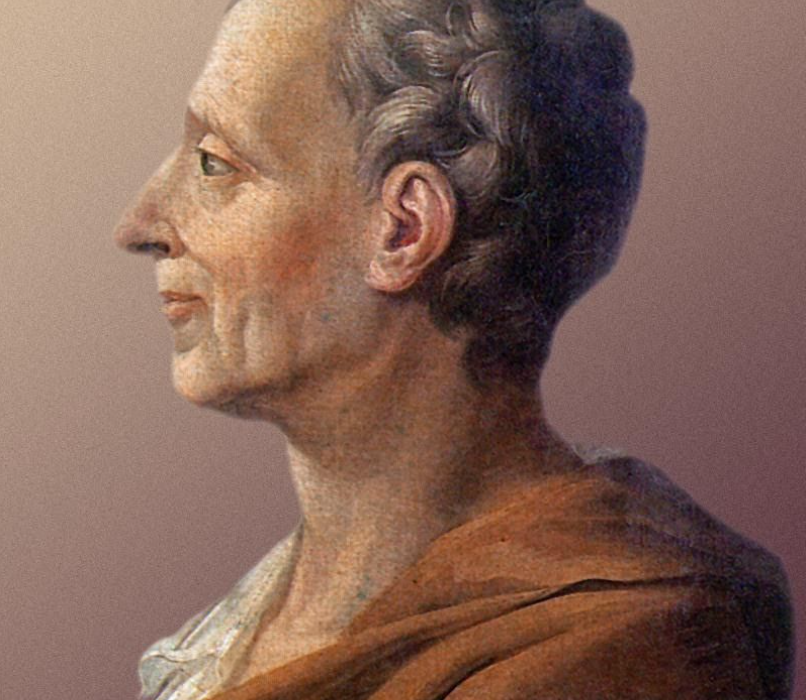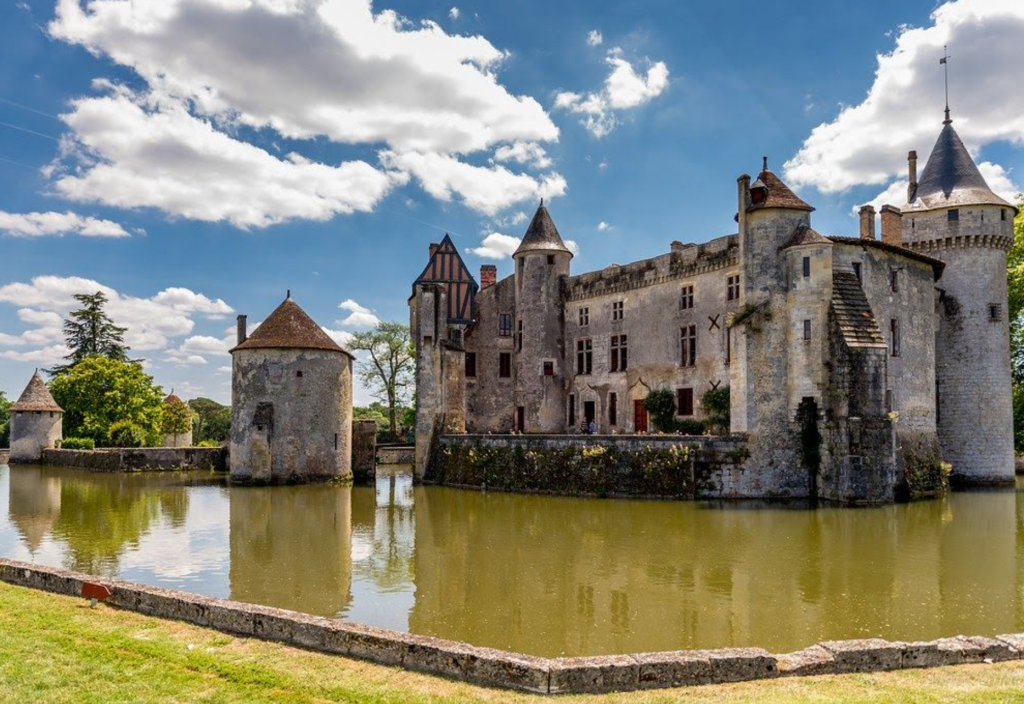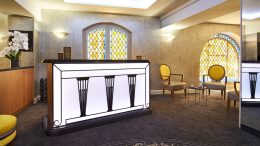Bayonne Etche-Ona de Bordeaux
Montesquieu and Bordeaux

AS PART OF THE SERIES “LES 3 M DE BORDEAUX”, HERE IS, AFTER OUR ARTICLE OF OCTOBER 2018 ON MONTAIGNE, A LITTLE REMINDER ON MONTESQUIEU
Charles-Louis de Secondat, known as Montesquieu, was born at Château de la Brède, southeast of Bordeaux, on January 18, 1689. His parents chose a beggar as his godfather so that he would remember that the poor are our brothers.
As a child, he studied with a tutor, then, at the age of 11, he went to the Oratorian college of Juilly, near Meaux. Back in Bordeaux five years later, he studied law there, so that he could take over from his uncle as judge (“président à mortier”) at the Bordeaux parliament. He completed his training in Paris in learned and literate circles.
He is 24 years old at the death of his father. As was the custom, his sisters and brother are placed in religious orders so that the patrimony remains in the hands of the eldest of the family.
In 1714, at the age of 25, he became a councillor at the Parliament of Guyenne. One year later, on April 30, 1715, he married Jeanne de Lartigue in Bordeaux. She is from a rich Protestant family, recently ennobled and brings him a beautiful dowry.
At the age of 27, he entered the Academy of Sciences of Bordeaux and founded an anatomy prize. He writes memoirs on the kidney glands, echo, gravity, ebb and flow and other scientific subjects. He also published a Dissertation on the politics of the Romans in religion. His uncle dies and Montesquieu inherits his office as president of mortar, his fortune and his title of baron.

In 1721, he publishes anonymously Les Lettres Persanes, a satirical epistolary novel. He makes fun of French society through two fictitious Persians, Usbek and Rica, who visit France from 1712 to 1720, and ridicules the habits, manias, prejudices and abuses going on in France. The exoticism brought by these two Persians and the biting and witty portraits painted in the novel make it a huge success. This opens the doors of the literary salons in Paris. As a result, between 1721 and 1728, he lived in Paris several months a year.
In 1724, he published the Dialogue of Sylla and Eucrate, then a treatise On the universal monarchy in Europe. Finally, various writings on the historical, legal and political question of the French constitution.
In 1728, he was elected to the French Academy (chair n°2), then travelled throughout Europe, in Austria, Hungary, the Italian Republics, Germany, Holland and England where he was initiated into freemasonry. What will be worth to him to be worried by the intendant of Guyenne and the cardinal of Fleury, in 1737.
For 14 years he devoted himself to writing the Esprit des Lois, a treatise on political science which appeared in 1748. In it, he denounced despotism, slavery, torture and all abuses. He advocated moderation and freedom. He set out his thoughts on the separation of powers of the State. It is his innovative ideas that helped define the principle of Western democracies.
This immense work tires him and his health deteriorates. He becomes almost blind: “I confess that this work thought it would kill me. I’m going to rest, I won’t work anymore” he wrote to a friend in 1749. But he took up the pen again, in response to criticism, and wrote the Defense of the Spirit of the Laws (1750).
He died in Paris on February 10, 1755.
If you want to find in Bordeaux the traces of Montesquieu, click on this link ⬇it will allow you to walk in his footsteps…



